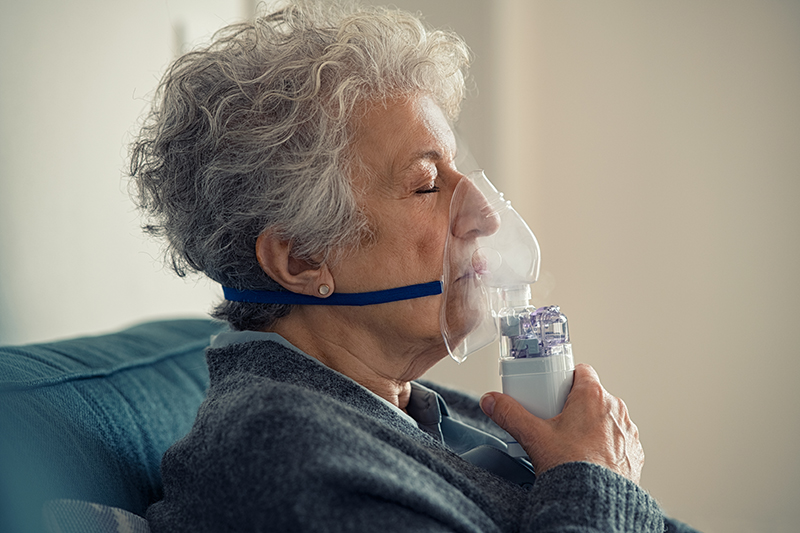
Houston-Based Acute Care Nurse Practitioner Shares Essential Winter Health Tips to Stay Safe in Cold Weather
Winter weather can bring beautiful snow-covered landscapes and cozy evenings indoors, but it also brings unique health challenges that everyone should be prepared for. To help navigate these seasonal health risks, we turn to expert advice from Angelia M. Elgin, DNP, RN, MA, ACNP-AG, CCRN, an Acute Care Nurse Practitioner at Memorial Hermann Health System and a faculty member at Chamberlain University. A Houston resident with an extensive background in emergency medicine, Elgin focuses on improving patient outcomes.
She is also a former fire chief, bringing a wealth of crisis management expertise to her work. In addition to her clinical role, Elgin serves as a faculty member at Chamberlain University, where she mentors aspiring nurses in the BSN program. Her mission to combine clinical excellence with education helps shape a new generation of compassionate, skilled healthcare professionals.
Q: What are some of the most concerning health complications that Houstonians need to be on the lookout for when extreme cold strikes?
Elgin: Hypothermia, a drop in body temperature to less than 95 degrees, might be the most obvious concern. It’s a very dangerous condition that can lead to organ failure and even death if untreated. It is especially common among the elderly, young children, and those with chronic illnesses. Extreme cold can also pose dangers to patients with hypertension or clotting problems.
Common indications of hypothermia include shivering, confusion, and drowsiness. In young children, cold, red skin and labored breathing are also signs to watch out for. If you notice someone exhibiting any of these symptoms, call 911 immediately. Remove any wet clothing and cover the person with warm blankets or apply warm compresses, avoiding direct heat (e.g., hot water or a heat lamp).
Q: How can keeping indoor heating too high during winter impact the health of older adults or those with chronic conditions like diabetes or cardiovascular disease?
Elgin: Conversely, keeping the heat too high for an elongated period can also have adverse effects. Heating systems can pose a danger to older adults, especially those with decreased circulation. Conditions that are of particular concern include obesity, cardiovascular disease, neuropathy and diabetes, which affects roughly one-third of adults over 65 and can interrupt blood flow, leading to temperature dysregulation.
 Angelia M. Elgin, center, in 2024 at the Women and Our Superpowers event held at
Angelia M. Elgin, center, in 2024 at the Women and Our Superpowers event held at Q: How do sudden weather changes and colder temperatures contribute to an increase in illnesses like the flu, COVID-19, RSV, and norovirus, particularly in Texas?
Elgin: Sudden weather changes can also trigger certain illnesses, challenging our immune systems. Cold, dry air can make you more susceptible to viruses and can activate asthma or bronchitis. Additionally, congregating indoors increases your chances of sharing germs, which is why we are seeing many parts of the country experience surges in the flu, COVID-19, RSV and norovirus. According to the Influenza-like Illness Surveillance Network, which tracks outpatient visits for respiratory illnesses that include a fever plus a cough or sore throat, Texas is experiencing high activity of these sicknesses.
Q: What precautions should individuals with heart and lung conditions take to protect themselves from illnesses like the flu during winter?
Elgin: Taking extra precautions against common illnesses by frequently washing our hands, wearing masks, and keeping up with vaccinations is important for all of us, and especially important for those with heart and lung problems. The flu virus can severely impact your lungs, causing blood oxygen levels to drop dangerously low. Low oxygen levels can also impact the heart’s ability to function, potentially leading to a heart attack or cardiac arrest. With many people over age 50 experiencing atherosclerosis, gradual plaque buildup in the arteries, it is crucial to stay vigilant of symptoms like shortness of breath, rapid heart rate, fast breathing, and coughing or wheezing.
Mobile Sidebar Ad
Q: What advice do you have for staying healthy during the winter months, especially with the increase in illnesses?
Elgin: I’ve seen many rounds of winter illnesses, both in my experience as an acute care nurse practitioner, and associate professor at Chamberlain University’s Houston campus, where I educate today’s aspiring nurses. Remember that even healthy people are susceptible to these prevalent ailments during the winter months, and to remain well while we wait for spring temperatures to return, eat a nutritious diet, get quality sleep, drink plenty of water and stay home if you are feeling ill.
 Tiffany Krenek has been on the My Neighborhood News team since August 2021. She is passionate about curating and sharing content that enriches the lives of our readers in a personal, meaningful way. A loving mother and wife, Tiffany and her family live in the West Houston/Cypress region.
Tiffany Krenek has been on the My Neighborhood News team since August 2021. She is passionate about curating and sharing content that enriches the lives of our readers in a personal, meaningful way. A loving mother and wife, Tiffany and her family live in the West Houston/Cypress region.

